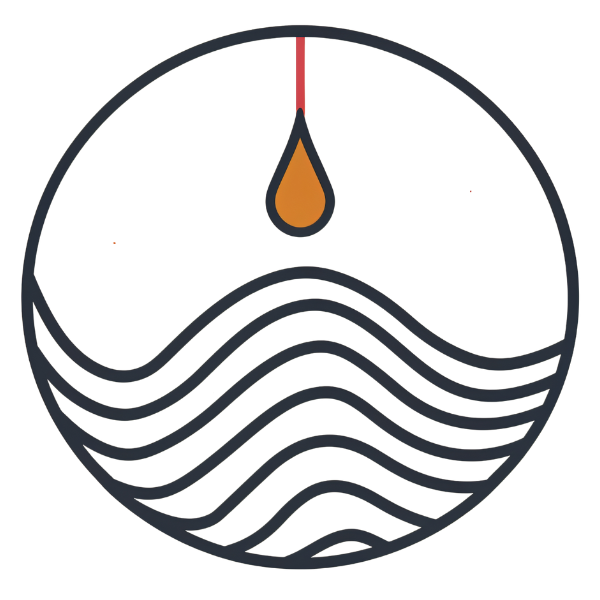
Top 12 Omega 3 Supplements for Optimal Health
Share
Omega-3 fatty acids are essential for our bodies, but we can’t make them ourselves. In this guide, we’ll explore the best omega-3 supplements to support your health. We’ll dive into different options, their benefits, and the science behind them, so you can make the right choice for your needs and health goals.
Key Points About Omega-3 Supplements
- Omega-3 fatty acids are essential for heart and brain health and anti-inflammatory
- The three main types are ALA, EPA, and DHA, each with unique health benefits
- Natural sources include oily fish, flaxseed, chia seeds and walnuts
- Supplements can fill in dietary gaps, especially for vegetarians and vegans
- Consult a doctor before use, especially if you are taking medication or have health problems
- Choose high quality supplements, tested for purity and contaminants
- Benefits include anti-inflammatory, improved cognitive function and cardiovascular health
- It may take 8-12 weeks for effects to be noticeable; consistency is important
- Mild side effects such as fishy taste or mild digestive upset may occur
- Supplements are a supplement to, not a replacement for, a healthy, varied diet
1. Welle Vita Omega 3 Fish Oil Capsules
Our Welle Vita Omega 3 supplements provide 2000mg of fish oil per serving, with 800mg EPA and 600mg DHA. These capsules support your heart and brain function and are one of the most effective choices for cardiovascular and cognitive health.
Features:
- 2000mg high quality fish oil per serving
- 800mg EPA and 600mg DHA for comprehensive health benefits
- Supports heart and brain function
- Made from sustainable fish oil
- Free from artificial additives
- Supports anti-inflammatory throughout the body
Price: €33.90 EUR
These capsules are a great choice for those looking for a high-quality omega-3 supplement. They are carefully formulated for an optimal balance of EPA and DHA. Find out more about our Omega 3 Fish Oil Capsules here and discover how they can support your health.
2. The Importance of EPA and DHA in Omega 3 Supplements
EPA and DHA are the most important omega-3 fatty acids for human health. They support heart and brain function. EPA has anti-inflammatory properties and supports the cardiovascular system. DHA is essential for brain development and function.
EPA and DHA are mainly found in fatty fish and seafood. For people who eat little fish, omega-3 supplements can be important. When choosing a supplement, pay attention to the amounts of EPA and DHA. A daily intake of 250-500 mg EPA and DHA is often recommended.
Learn more about how omega-3s can lower your cholesterol and improve your heart health .
3. Natural Sources of Omega 3
In addition to supplements, there are several natural food sources rich in omega-3 fatty acids:
- Fatty fish: salmon, mackerel, herring, sardines, trout
- Plant sources: flaxseed, chia seed, walnuts, hemp seed
- Algae - especially important for vegetarians and vegans
- Enriched eggs
- Edamame (young soybeans)
- Seaweed and spirulina
Try to get omega 3 from your diet. If that is difficult, supplements can help. Plant sources contain mainly ALA, which the body must convert into EPA and DHA. This conversion is not always efficient.
Discover the 10 best food sources of omega-3 fatty acids here to learn more about incorporating these nutrients into your diet.
4. Omega 3 for Women: Special Considerations
Women may benefit from omega-3 supplements, especially during pregnancy, breastfeeding and menopause. Omega-3 fatty acids are important for several aspects of female health.
During pregnancy, DHA is essential for the development of the baby's brain and eyes. Sufficient DHA intake can contribute to:
- Improved cognitive development of the baby
- Better visual processing in newborns
- Possible reduced risk of preterm birth
- Supporting the mother's emotional health
For women in menopause, omega 3 can help with:
- Relief from mood swings and depressive feelings
- Supporting bone health
- Possible reduction of hot flashes
- Supporting heart health
Omega 3 supplements can help women at all stages of life:
- Healthier skin, hair and nails
- Reduction of menstrual pain and irregularities
- Fertility support
- Improving the inflammation balance in the body
Choose supplements that are tested for contaminants and free of heavy metals. Consider a supplement with a higher concentration of DHA during pregnancy and breastfeeding.
Read more about the best omega 3 supplements for women in 2024 to make a good choice that suits your needs and stage of life.
5. Omega 3 and Heart Health
Omega-3 fatty acids, especially EPA and DHA, are important for heart health. They can help:
-
Cholesterol management:
- Lowering Triglycerides
- Slightly increase HDL (the "good" cholesterol)
- Possibly reduce LDL (the "bad" cholesterol)
-
Inflammation inhibition:
- Reducing inflammatory markers in the blood
- Protecting blood vessels against inflammatory damage
-
Blood pressure regulation:
- Promote the elasticity of blood vessels
- Supporting healthy blood flow
- Possible slight lowering of blood pressure
-
Heart rhythm stabilization:
- Reducing the risk of heart rhythm disorders
- Possibly reducing the risk of sudden cardiac death
-
Reduce plaque formation:
- Slowing or reducing plaque formation in arteries
- Improving blood circulation
Omega 3 supplements are not a substitute for a healthy lifestyle. Combine them with:
- A diet rich in vegetables, fruits, whole grains, and lean proteins
- Regular exercise
- Stress management
- No smoking and moderate alcohol consumption
Consult with a healthcare professional before taking omega-3 supplements, especially if you are already taking medications.
Find out how omega-3 can lower your cholesterol and improve your heart health here to learn more about omega-3 and cardiovascular health.
6. The Role of Omega 3 in Mental Health
Omega 3 fatty acids, especially DHA and EPA, are important for our mental health. They can contribute to:
-
Depression and mood disorders:
- Possibly reducing symptoms of depression
- May improve the effectiveness of antidepressants
- Helps regulate neurotransmitters such as serotonin and dopamine
-
Anxiety disorders:
- May help reduce anxiety symptoms
- Possibly regulating the stress response in the body
-
Cognitive function and memory:
- DHA is important for brain cell membranes and signal transmission
- May contribute to better cognitive performance
-
ADHD:
- May help reduce ADHD symptoms
- Possibly improving attention, concentration and impulse control
-
Inhibition of inflammation in the brain:
- Can contribute to a healthier brain environment
-
Sleep quality:
- Can contribute to better sleep quality
Omega 3 is not a substitute for professional treatment for mental illness. Consult with a healthcare professional before use, especially with medications for mental illness.
Read more about how omega 3 can help with depression here for more insight into the relationship between omega 3 and mental health.
7. Omega 3 for Skin Health and Anti-Aging
Omega 3 fatty acids are important for healthy skin and can help slow skin aging. Here’s how omega 3 can contribute to skin health and anti-aging:
-
Hydration and barrier function:
- Strengthens the skin barrier for better moisture retention
- Protects against harmful external influences
-
Inflammation inhibition:
- Reduces redness, irritation and inflammation in the skin
- May help with conditions such as acne, rosacea or eczema
-
Collagen production and elasticity:
- Supports the production of collagen and elastin
- May help reduce fine lines and wrinkles
-
Protection against UV damage:
- May help protect skin from UV-induced damage






